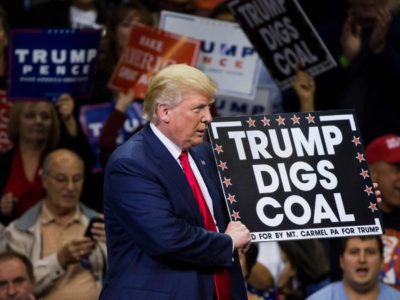The Election Results and National Energy Policy
 In trying to read the effect of the 2012 elections on national energy policy, there are at least five places to look:
In trying to read the effect of the 2012 elections on national energy policy, there are at least five places to look:
1. Continuity at the Federal Energy Regulatory Commission
One of the more dramatic changes that occurred during the first Obama term was a shift in the mission of the Federal Regulatory Commission. FERC fundamentally regulates wholesale power rates and electric power rates in interstate commerce. Since 1992, FERC has seen its primary mission as promoting the expansion of competitive wholesale power markets and the accoutrements needed to support those markets. This has not changed. But the older FERCs were agnostic as to fuel choice for generating electricity and silent on issues effecting the environment. The current Commission has repeatedly acknowledged what it sees as the importance of policies promoting renewable energy development and has refined the agency’s policies in areas such as wholesale power market design as well as electric transmission planning and pricing to reflect that priority. Current Chair Jon Wellinghoff has a steady history of promoting renewable energy and a keen interest in advancing the use of electric vehicles. Look for these policies to continue, especially if Wellinghoff stays at the helm.
2. New Leadership at the Department of Energy
In choosing Steven Chu to head the Department of Energy, President Obama turned to a brilliant scientist with no taste for the political fight. It is extremely important that DOE has been run by someone who understands energy and deeply cares about promoting both energy efficiency and renewable energy development. It would be hard to say these things about most DOE leaders as they walked in the door. With the ever-growing profile of energy issues, the President can now choose a new DOE leader from a list of people both steeped in energy policy and ready to go into battle. The result may be the selection of a secretary who can be an even stronger voice affecting the policy discussion on the Hill and beyond. In the meantime, expect more progress from the lower ranks of the agency, as the mid-level leaders brought in during the current administration begin to hit their stride. It takes years to staff up, identify preferred strategies, and start to make them work.
3. New Opportunity in the U.S. Senate
With the retention of control in the Senate and the retirement of Senator Bingaman, leadership in the Senate Committee on Energy and Natural Resources shifts to Oregon Senator Ron Wyden. This may prove to be a significant change. While Bingaman and Wyden might share some basic values about the importance emphasizing renewable energy and other cleaner sources, Senator Wyden seems to have greater interest in working across the aisle, a willingness to question policy that promotes unfettered exploitation of natural gas resources and an eye toward using the federal stage to motivate better renewable energy policy in the states. Working in a chronically obstructed institution where one member can often stop new legislation in its tracks, and living next door to a House of Representative controlled by another party makes any significant progress on energy policy a steep challenge. Wyden seems to be eager and excited to take it on.
4. Further De-Emphasis of Coal by the Environmental Protection Agency
Others can better describe strategies at the EPA and assess the likelihood of Congressional budget actions getting in the way. However, the Administration’s mercury rules have created the potential for further significant reductions in the use of coal for electric generation, and its efforts to reduce methane leakage at hydraulic fracturing sites could go a long way to improve the carbon footprint of natural gas. Certainly, these efforts and others affecting the energy landscape have a greater chance of surviving through the next four years under the current leadership.
5. A Change of Tune from the Bully Pulpit
For two years, President Obama omitted any reference to climate change in his State of the Union address, and abandoned efforts to promote climate legislation. In celebrating his successful re-election, he brought up the subject again. The country will accomplish little on the national level to reduce greenhouse gas emissions and adopt energy policy consistent with that result in the absence of a strong voice from the top, and a willingness to insist on maintaining public attention on the subject. There is at least a chance that the President may now be able to provide that leadership.







Reader Comments